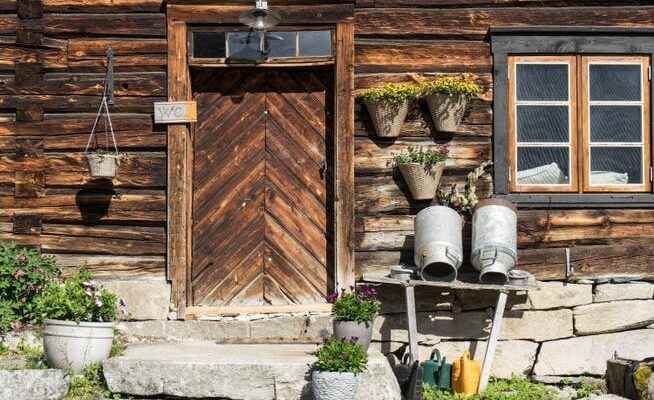The Norwegian government is reluctant to temporarily waive tariffs on agricultural exports in war-torn Ukraine. This has created bad blood domestically. The opposition speaks of “disgraceful pettiness” in favor of the local farmers’ lobby.
Mountain farm in Norway. Agriculture is heavily protected, which is a constant source of political controversy in Norway.
«Ukraine is being bombed, its economy is collapsing by 35 percent. But, as our government says: ‘Norway’s grain production is at risk’», tweeted in mid-December with a palpably irritated undertone, the liberal Norwegian MP Sveinung Rotevatn. He was commenting on the persistent refusal of the social-democrat-led minority cabinet led by Jonas Gahr Störe to temporarily waive the customs duties on imports of Ukrainian agricultural goods to Norway. The fact that Norway is the only country of Ukraine’s western allies that has not taken this measure to support the war-ravaged country is only embarrassing.
Rotevatn is not alone in his criticism. Norway doesn’t look like a country that wants to shake hands with Ukraine, said Conservative MP Ine Eriksen Söreide, a former foreign and defense minister. The verdict in newspaper commentaries was even sharper. The business newspaper “Dagens Naeringsliv” wrote that Norway’s solidarity with Ukraine is apparently reaching its limits when it comes to Norwegian farmers – farmers, by the way, who this year record-high subsidies have been considered.
The Minister of Agriculture is undeterred
The respected newspaper Aftenposten, on the other hand, described the Norwegian government as “petty” and said acidly that not even a war could persuade Norway to abandon agricultural protectionism. She also named the driving force behind it: the Center Party, junior partner of the Social Democrats in the governing coalition and traditionally a champion of farmers’ concerns.
The political dispute in Norway is all the more remarkable as it is not about a lot of money. Last year, Ukraine exported goods worth the equivalent of around 70 million francs to Norway, with dutiable goods only worth around 4 million francs. The catch, however, was that these were products that are also produced by Norwegian farmers.
the Minister of Agriculture Sandra Borch, a representative of the Center Party, was undeterred by criticism from opposition politicians and the media. Of course they want to help Ukraine, she said. But if you open the door on import duties, it is very difficult to close them again – with all the consequences that would have for Norwegian grain production.
Störe acts little sovereign
The recent controversy is not the first when it comes to Norway and the war in Ukraine. As Western Europe’s most important exporter of oil and gas, the country has repeatedly been accused of making good money from the war because it drove up energy prices. At the same time, Norway, with its petroleum industry, is also a kind of lifeline for Western Europe when it comes to breaking away from Russian energy sources.
The situation is not black and white. And the government defends itself by providing support to Ukraine at various levels. That’s true. Both military equipment and humanitarian supplies are generously provided by Norway. Oslo has converted for 2022 and 2023 CHF 1 billion budgeted for Ukraine. A fifth of this is used to finance Norwegian natural gas, which is intended to help Ukraine through the winter.
However, Prime Minister Jonas Gahr Störe has not yet made a sovereign figure when it comes to balancing various interests. The current indignation about agricultural protectionism and the yielding to the particular interests of the farmer lobby are an expression of this.
Or as one well-known political figure put it: It is astonishing that the government is spending billions of kroner on Ukraine, but is turning off the tap at the slightest sign that Norwegian farmers could be negatively affected. And it seems strange when at the same time the Nobel Peace Prize is handed over to people who work for democracy in Ukraine.
